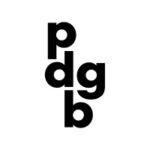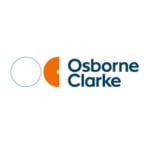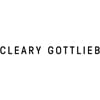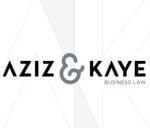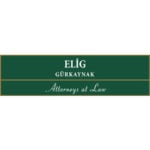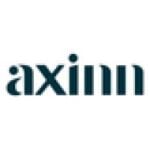-
What is the relevant legislative framework?
The Danish rules on cartels are set out in sections 6 and 8 of the Danish Competition Act (the “DCA”) which generally correspond to Article 101 of the Treaty on the Functioning of the European Union (the “TFEU”). Furthermore, with respect to agreements and anti-competitive conduct which might affect trade between EU member states, Article 101 TFEU applies in parallel with the DCA.
Section 6 of the DCA contains a provision equivalent to Article 101(1) TFEU which prohibits undertakings from entering into agreements that have as their direct or indirect object or effect the restriction, distortion or prevention of competition.
Section 8 of the DCA contains an exemption from the prohibition on anti-competitive agreements corresponding to Article 101(3) TFEU. However, as a very clear main rule, cartel agreements will not benefit from this exemption. Furthermore, specific exemptions apply to certain categories of agreements in accordance with Danish rules which correspond to and implement relevant EU block exemption regulations.
In addition, the prohibition in the DCA does not apply to anti-competitive agreements that are a direct or necessary result of public regulation, see section 2 of the DCA.
In accordance with section 23(1) of the DCA, anti-competitive conduct can be sanctioned by civil fines, and in accordance with section 23(4) of the DCA, individuals involved in anti-competitive conduct can be sanctioned by personal fines, and in cases of cartel violations of a grave nature, sanctioned by imprisonment of up to 1 year and six months. In case of particularly aggravating circumstances, imprisonment for up to six years can be imposed, cf. section 299 c of the Danish Criminal Code.
-
To establish an infringement, does there need to have been an effect on the market?
This depends on whether the agreement is considered to have as its object or effect the restriction of competition. Cartel agreements are generally considered by object restrictions which are assumed to harm competition so that there is no need to examine their effects on the market. Therefore, there does not need to have been an effect on the market to establish an infringement by a cartel agreement.
-
Does the law apply to conduct that occurs outside the jurisdiction?
The decisive criteria for applying the DCA is whether the conduct has an effect on competition in Denmark. This applies regardless of whether the undertaking in question is located in Denmark or not.
-
Which authorities can investigate cartels?
In Denmark, the relevant competition authorities are the Danish Competition and Consumer Authority (the “DCCA”), the Danish Competition Council (the “Council”) and the Danish Competition Appeals Tribunal (the “Tribunal”).
The DCCA investigates and prepares competition cases, including cases concerning cartels. The DCCA then presents the case before the Council which in turn decides whether an infringement has been made.
The Council’s decisions can be appealed to the Tribunal or directly to the national courts.
In case of prosecution against individuals, cases are reported to the Danish Special Crime Unit (the NSK), which investigates the case against individuals and prosecutes the case before the national courts.
-
How do authorities typically learn of the existence of a potential cartel and to what extent do they have discretion over the cases that they open?
The DCCA may investigate a case on its own initiative, on the basis of a leniency application or a complaint or as a result of a referral from the EU Commission or other competition authorities within the EU, see section 15 of the DCA.
In cartel cases, the DCCA most often initiates its investigations based on either a complaint from a customer or a competitor or based on a leniency application. The DCCA has a whistleblowing portal on which anyone may submit tips or complaints anonymously which may also lead to the DCCA initiating investigations.
The DCCA may also initiate an investigation of a potential cartel on its own initiative. This may, for example, occur in cases where the DCCA, in connection with a control investigation, processing of a merger application or similar, becomes aware of circumstances that may indicate cartel conduct.
The DCCA has a relatively broad range of discretion in deciding which cases it wishes to formally open, taking into account the prioritization of resources. Pursuant to section 15(1) of the DCA, the DCCA may determine whether there is sufficient basis to investigate or open a case. If the DCCA finds that there is not sufficient basis to initiate formal investigations, the DCCA may thus decide not to handle a case. A decision to not open a case is not appealable to the Tribunal and must therefore be appealed to the national courts.
-
What are the key steps in a cartel investigation?
On receipt of a complaint or a leniency application, the DCCA will, in the preliminary investigation phase, gather more information on the matter to assess whether there is cause for initiating formal proceedings. Such additional information may be obtained by means of public sources and through conversations with the complainant, the undertaking under investigation of the cartel conduct or from its competitors or customers. Furthermore, the DCCA may gather information by carrying out a dawn raid (after having obtained a court order).
If the DCCA decides to initiate formal proceedings, the undertaking(s) under investigation of the cartel conduct will be notified of the investigation if they have not been consulted in connection with the preliminary investigations. At the same time, the DCCA will share a notification of concerns in which the DCCA describes its initial concerns and sets out the reasons for its investigation. The undertaking will be given two weeks to provide its written comments to the allegations. However, this deadline will usually be extended at the undertaking’s request. Furthermore, the undertaking will be encouraged to enter into a dialogue with the DCCA regarding the possibility of ending the case by way of offering commitments or accepting a settlement fine.
Then, the formal investigation phase will begin, in which the DCCA will gather more information and documentation by sending more formal questionnaires to the undertaking under investigation and relevant market players. More often than not, the DCCA will send more rounds of questions. Furthermore, the DCCA may interview employees and initiate actual market investigations.
The DCCA usually keeps the undertaking under investigation informed of the status of the case and its investigations, and it will also be possible to apply for access to documents at any time during the cartel investigation.
If the DCCA decides not to close the matter after the formal investigation phase, the DCCA will issue a statement of objections with a six-week deadline for the undertaking under investigation to provide its written comments, and the undertaking will be given an opportunity to present its arguments in a 20-minute oral submission before the Council. Based on this, the DCCA will prepare a draft infringement decision which will be presented to the Council for its approval when the undertaking’s comments, if any, have been received and implemented.
The Danish competition authorities do not currently have the power to impose fines but may bring the case before the Danish courts to be heard under the civil procedure rules, see sections 23-24 of the DCA. However, individuals infringing Danish competition law are prosecuted by the Danish Special Crime Unit and sanctioned under the criminal procedure rules.
-
What are the key investigative powers that are available to the relevant authorities?
The DCCA generally has rather wide-reaching investigative powers.
As part of its investigation and following a court order, the DCCA may conduct an unannounced on-site inspection (dawn raid) at the premises of an undertaking suspected of having infringed competition rules, the private homes or cars of leading employees or the premises of other undertakings which are presumed to hold evidence relevant to an investigation regardless of whether such undertakings are suspected of infringements.
The undertaking is obligated to give the DCCA access to any information within the scope of the investigation, and the DCCA may take copies of all documents, information etc. that the undertaking has access to, regardless of media, including information located on a server outside the undertaking’s premises, e.g. in another country.
The undertaking and its employees are obligated to answer questions from the DCCA regarding the facts and documents concerning the investigation, but not if this entails self-incrimination.
Failure to cooperate with the DCCA during a dawn raid may be sanctioned by fines.
-
On what grounds can legal privilege be invoked to withhold the production of certain documents in the context of a request by the relevant authorities?
During an investigation, the DCCA will be bound to follow the principle of legal privilege. Consequently, the DCCA will not be entitled to review correspondence between an undertaking and its external legal counsel if the correspondence regards the undertaking’s compliance with the competition rules and is connected to the investigation. This also includes preparatory documents prepared by the undertaking solely for the purpose of obtaining legal advice from an external lawyer. No legal privilege applies to advice of in-house counsel.
-
What are the conditions for a granting of full immunity? What evidence does the applicant need to provide? Is a formal admission required?
It is possible to be granted full immunity if the applicant is the first of the cartel participants to contact the DCCA with information about the cartel. However, only if the following conditions are met:
- The information provided by the applicant either leads to the DCCA being able to carry out an inspection (dawn raid) in connection with the cartel or provides a basis for the DCCA establishing a violation of the prohibition against cartels.
- The applicant discloses its participation in the cartel.
- The applicant ceases to participate in the cartel no later than immediately after the submission of the leniency application.
- The applicant has not destroyed, falsified or concealed evidence relating to the cartel.
- The applicant has not disclosed the application to others.
- The applicant has not forced others to participate in the cartel.
- The applicant cooperates fully and loyally with the DCCA throughout the case.
Admission of a formal leniency application is required, in which the applicant must provide all relevant information and documentation relating to the cartel, including information on all parties involved and a detailed description of the cartel conduct.
-
What level of leniency, if any, is available to subsequent applicants and what are the eligibility conditions?
If the applicant is not the first applicant to apply for leniency, the undertaking cannot be granted full immunity. However, the sanction may be reduced.
With respect to the reduction of fines, the applicant’s information must represent significant and additional value for the DCCA in its investigations compared to the information already available to it. In addition, the conditions set out above in paragraph 3.1 (ii)-(vii) must be met. An applicant second in line is eligible for a 50 per cent reduction of the fine while an applicant third in line is eligible for a 30 per cent reduction of the fine. Subsequent applicants may have the fine reduced by up to 20 per cent.
With respect to imprisonment sanctions, it is up to the courts to decide whether a prison sentence for individuals should be reduced based on the subsequent applicant’s contribution to the investigation. This is not relevant for the first applicant.
-
Are markers available and, if so, in what circumstances?
An amendment to the DCA entered into force on 1 January 2018 permitting markers, following a recommendation from the OECD. The amendment allows a cartel participant to approach the DCCA with some initial information about its participation in a cartel in exchange for a commitment by the DCCA that it will “reserve” the cartel participant’s place in line while finalising the final leniency application.
-
What is required of immunity/leniency applicants in terms of ongoing cooperation with the relevant authorities?
A leniency applicant must cooperate continuously and fully with the DCCA throughout the case. The obligation to cooperate begins at the time of the submission of the application and will end when the case is finally concluded against all the parties covered by the investigation or when the case is otherwise closed.
The cooperation requirement entails that the applicant must make itself available to the DCCA at any time to provide any information needed on the factual matters and make available its directors and employees for interviews. Furthermore, the applicant must keep its leniency application confidential until the DCCA has issued a statement of objection to other cartel participants.
-
Does the grant of immunity/leniency extend to immunity from criminal prosecution (if any) for current/former employees and directors?
Executives and board members may be sanctioned with fines and imprisonment for up to 6 years. However, it is possible to be granted full immunity if the applicant is the first of the cartel participants to contact the DCCA with information about the cartel. If an undertaking is granted immunity, this also includes its employees and directors.
-
Is there an ‘amnesty plus’ programme available in respect of evidence provided to prove additional infringements?
There is no amnesty plus programme in Denmark.
-
Does the investigating authority have the ability to enter into a settlement agreement or plea bargain and, if so, what is the process for doing so?
The DCCA may close the case by imposing administrative fines (i.e. out-of-court settlements) on undertakings at any time during its investigation process, provided that the undertaking pleads guilty and that the facts of the infringement and fine level are relatively clear. With respect to individuals, the ability to enter into a settlement agreement lies with the police, more specifically the Danish Special Crime Unit, and any settlement agreement will also require an admission of guilt.
If the case is brought before the courts based on an infringement decision by the competition authorities, it will not be possible to agree on a plea bargaining as such under Danish law, however, it is possible to agree on in-court settlements.
-
What are the key pros and cons for a party that is considering entering into settlement?
There are several elements to consider before entering into a settlement. The key advantages are that a settlement often results in a reduction in fine compared to what would be the starting point in a case before the courts and saves time and resources for the undertaking involved as legal proceedings are avoided. When entering into a settlement, the undertaking often helps the DCCA in clarifying the case which may give the undertaking a better reputation.
On the other hand, the main disadvantage is the undertaking’s admission of guilt and, thereby, a competition law infringement which may also damage the undertaking’s reputation and pave the way for third-party damages claims.
-
What is the nature and extent of any cooperation with other investigating authorities, including from other jurisdictions?
Denmark is a part of the European Competition Network (ECN). This entails a cross-border cooperation between the European Commission and the national competition authorities of the EU member states. Thereby, the DCCA may conduct dawn raids to assist the European Commission and other competition authorities in connection with these authorities’ application of Articles 101 and 102 of the TFEU. This is codified in section 18(9) of the DCA.
Furthermore, Denmark participates in an annual meeting with the other Nordic countries, i.e. Iceland, Finland, Sweden, Norway, Greenland and the Faroe Islands, with the purpose of exchanging legislative experiences and discussing cases and subjects of common interest. The DCCA may conduct dawn raids to assist these countries’ competition authorities, see section 18(10) of the DCA.
Under section 18c(3) of the DCA and subject to an agreement on reciprocity, the DCCA may disclose confidential information to other European competition authorities if such information is necessary to assist the authorities in their enforcement of national competition rules. Denmark has entered into a formal agreement regarding this with Norway, Sweden, Finland and Iceland.
Finally, as a result of the implementation of the ECN+ directive (Directive (EU) 2019/1), section 18b of the DCA allows for the DCCA to request information and carry out dawn raids and interviews on behalf of and for the account of other national competition authorities within the EU.
-
What are the potential civil and criminal sanctions if cartel activity is established? How often are civil sanctions and/ or criminal penalties imposed in practice following a finding of an infringement?
Cartel participation constitutes a serious infringement of the DCA, and undertakings who participate may be subject to fines. Sanctions on undertakings for cartel infringements are brought before the national courts by the DCCA under the civil procedure rules. Since the amendment of the sanction process in the DCA in 2021, there has so far only been one example of a case where an undertaking has been imposed a civil sanction following a finding of a cartel infringement (in the case at hand a sanction of DKK 20 million), however, this is likely due the legislative change being quite new and to many undertakings having accepted a fine notice or agreed on an out-of-court settlement.
Furthermore, executives and board members risk being sanctioned with fines of up to several hundred thousand DKK as well as possible imprisonment. Serious cartel agreements are sanctionable by 1.5 years of imprisonment if the prosecutor is able to establish intent or gross negligence. In particularly aggravating circumstances, the imprisonment sentence may be increased to 6 years. However, so far there has been no imprisonment sanctions in practice. Cases regarding sanctions on individuals are carried out in court under the criminal procedure rules.
-
What factors are taken into account when the fine is set? Does the existence of an effective corporate compliance strategy impact the determination of the fine? In practice, what is the maximum level of fines that has been imposed in the case of recent domestic and international cartels?
On 1 July 2024, an amendment to the DCA entered into force which amended the principles for calculating fines in order to ensure that fines for competition law infringements to a greater extent reflect the financial damage of the infringement in question by basing the fine level on the revenue associated with the infringement, for example from the products sold under a price cartel, in alignment with the guidelines from the European Commission on the Method of Setting Fines (2006/C 210/02). The new rules are expected to generally result in higher fine levels than historically.
This means that the DCCA have moved away from their previous method, whereby fines were determined within a fixed set of intervals based on the severity of the infringement.
Going forward, the DCCA will derive its fines on basis of a base amount that may be adjusted depending on whether any aggravating or mitigating circumstances apply. The base amount is determined by looking at the undertaking’s turnover as it directly or indirectly pertains to the infringement. Specifically, the relevant turnover is delineated as the value of the sale of goods or services that the undertaking has attained in the relevant geographic market as a direct or indirect result of the infringement. As a rule, the relevant turnover is derived from the undertaking’s latest full business year of its participation in the infringement.
Thereafter, the DCCA will have to establish what percentage of the relevant turnover the fine will consist of. This proportion may amount to up to 30% of the relevant turnover and is set based on the severity of the infringement. In case of a cartel infringement, the percentage will likely be between 15-25% of the relevant turnover. Other factors that may affect the percentage include the nature of the infringement, the combined market share of the undertakings involved, the geographic scope of the infringement and whether the infringement has been effectively implemented. Ultimately, the amount consisting of the given percentage of the relevant turnover is multiplied by the duration of the infringement leading to the final base amount.
This base amount may be adjusted based on possible aggravating circumstances such as clear intent, continued infringement or failure to cooperate with DCCA in carrying out its investigations. Moreover, the base amount may be reduced in case of any possible mitigating circumstances such as cooperation with the DCCA beyond the scope of the leniency rules, limited involvement in the infringement or evidence of the involvement being committed as a result of negligence as opposed to clear intent. Furthermore, if the undertaking can document that it has implemented and followed a robust compliance strategy, this can often lead to a lower fine.
In any event, the fine cannot exceed 10% of the undertaking’s total turnover on a worldwide group basis in the year prior to the infringement decision.
In a recent Danish court judgement from January 2025, an accounting company was imposed a fine of DKK 20 million for facilitating a market sharing cartel between Danish discotheques over a 15 year period. However, the fine in this case was calculated based on the calculation method used before the amendment to the DCA entered into effect on 1 July 2024.
In another case from September 2024 which concerned facilitation of price coordination, the fine was determined based on the new calculative method and set at DKK 7 million. However, the fine in this case was agreed under an in-court settlement agreement.
-
Are parent companies presumed to be jointly and severally liable with an infringing subsidiary?
As another consequence of the implementation of the ECN+ directive, a parent company may be held jointly liable for the fine of a subsidiary which is found to have infringed the DCA, see section 23a of the DCA.
This liability is based on the principle of “decisive influence,” which means that if a parent company exercises significant control over its subsidiary, it can be held responsible for the subsidiary’s actions.
-
Are private actions and/or class actions available for infringement of the cartel rules?
In December 2016, the Danish Act on the Processing of Actions for Damages for Competition Law Infringements (lov om behandling af erstatningssager vedrørende overtrædelser af konkurrenceretten) which implements the Damages Directive (EU Directive 2014/104/EU) entered into force.
The act applies to compensation claims regarding infringement of, inter alia, section 6 of the DCA. The act improved the possibilities for consumers, undertakings, and public authorities to claim compensation for an infringement of competition law before a national court.
-
What type of damages can be recovered by claimants and how are they quantified?
The Danish Act on the Processing of Actions for Damages for Competition Law Infringements applies to compensation claims regarding infringement of sections 6 and 11 of the DCA which corresponds to articles 101 and 102 of the TFEU.
Any legal or physical person who has suffered harm due to an infringement of these sections will be entitled to full compensation for the harm suffered. The injured party must be compensated as if the infringement had not been committed, including compensation for any loss suffered, e.g. loss of profit. Punitive damages cannot be recovered.
According to section 7 of the act, if a final Danish decision states that a violation of competition law has taken place, this factum is deemed to be irrefutably established for the purpose of an action for damages. If a final decision by another EU member state states that a violation of competition law has taken place, there is a presumption that a violation of competition law has taken places in a following case regarding action for damages. As a result, the number of claims brought as a result of competition law infringements has been increasing in recent years and will likely continue to do so.
-
On what grounds can a decision of the relevant authority be appealed?
There are several grounds on which a company may appeal the merits of an infringement decision made by the Council, including e.g. procedural errors, substantive errors or new evidence.
Any infringement decision by the Council may be appealed in two ways; either by way of an administrative appeal to the Tribunal or directly to the Danish Maritime and Commercial High Court. Decisions regarding formalities (e.g. access to documents, confidentiality etc.) may only be appealed to the Tribunal.
If appealed to the Tribunal, the Tribunal will conduct a full and thorough review of the case and may uphold or reverse the Council’s decision or remit the decision to the Council. The Tribunal’s decisions may be appealed and brought before the courts.
Any court decisions may be further appealed to the Danish High Courts.
-
What is the process for filing an appeal?
The deadline for appealing a decision made by the Council is eight weeks regardless of whether the appeal is brought before the Tribunal or the courts.
When submitting an appeal to the Tribunal, the appeal must contain the appealed decision as well as a description of claims and further justification for the appeal and information to support this. Otherwise, the appeal will be rejected. A complaint fee of DKK 5,000 must be paid. As a main rule, there is no suspensive effect, but, on request, the chairman may decide that a complaint must be given suspensive effect. All this may be done online.
An appeal directly to the courts must be submitted in accordance with the Danish civil procedure rules.
-
What are some recent notable cartel cases (limited to one or two key examples, with a very short summary of the facts, decision and sanctions/level of fine)?
The Council’s decision of 13 September 2024.
The supplier and retailer of men’s fashion, HUGO BOSS, had over a period of 4 years exchanged information on its future retail campaigns, including sales and future prices, with two of its Danish retailers (and competitors), Kauffmann and Ginsborg. Given that HUGO BOSS also had a presence on the retail market, the actions in question were deemed to be of a horizontal nature, thus constituting a cartel infringement. The case stems all the way back from 24 June 2020 where the Council rendered its first decision on the matter. Specifically, the Council found that the exchange of sensitive and not publicly available information established a concerted practice that was anti-competitive by object. Since then, the case has undergone several appeals, but ultimately the Danish Maritime and Commercial High Court ended up upholding the Council’s findings by ruling of 6 May 2024.
The case was formally closed on 13 September 2024 when HUGO BOSS admitted to having breached the competition rules and agreed to an administrative fine of DKK 12 million. Kauffmann and Ginsborg had at that point already settled its cases by respectively accepting a fine of DKK 3.7 million and being granted immunity under the leniency rules.
The Tribunal’s decision of 20 November 2024
A number of small power plants had over a period of 3 years coordinated prices and bids for the sale of electricity reserve capacity through the use of a coordinating third party. In this case, 49 power plants entered into individual, yet fundamentally similar agreements with the company Effekthandel. Effekthandel was responsible for pooling the capacity and submitting bids on behalf of the power plants and subsequently set the prices for these bids.
Although the plants had entered into separate agreements with Effekthandel, the Council determined that it was evident to the plants that this constituted illegal coordination with the explicit purpose of inflating prices in the market. Effekthandel routinely sent joint emails to the plants regarding the coordination, indicating that the purpose of the pooling system was to elevate market prices.
On this basis, the Council found by decision of 25 October 2023 that Effekthandel and the 49 power plants had infringed the competition rules. Effekthandel and 8 of the power plants appealed the decision to the Tribunal, while the remaining power plants opted to appeal directly to the national courts.
The Tribunal upheld the Council’s decision by ruling of 20 November 2024, which Effekthandel responded to by bringing the case before the national courts. While Effekthandel will attempt to be acquitted before the courts, the DCCA will counterclaim by seeking that a fine will be imposed on the relevant undertakings under the ECN+ Directive.
The first couple of cases are expected to be go before the Danish Maritime and Commercial High court in September 2025.
-
What are the key recent trends (e.g. in terms of fines, sectors under investigation, any novel areas of investigation, applications for leniency, approach to settlement, number of appeals, impact of hybrid working in enforcement practice – e.g. dawn raids of domestic premises, ‘hybrid’ in-person/virtual dawn raids, access to personal devices, etc.)??
- We experience an increased focus from the DCCA on taking measures against facilitators of cartels. In recent cases, heavy fines have been imposed on not only the participating undertakings of a cartel, but also (and sometimes only) on the facilitators of the cartels.
- As a result of employees to a larger extent working from home, we generally experience an increase in dawn raids on employees’ domestic premises and in requests for access to personal devices, social media accounts etc.
- The DCCA also has an increased focus on communication by other means than e-mail, and we see more and more often that the DCCA includes information shared by e.g. text messages, Microsoft Teams chats or social media (Messenger or WhatsApp) in its investigations.
-
What are the key expected developments over the next 12 months (e.g. imminent statutory changes, procedural changes, upcoming decisions, etc.)?
The amendment of the DCA which entered into force on 1 July 2024 introduced a new tool allowing the DCCA the possibility of initiating a so-called market investigation. On 1 April 2025, the DCCA for the first time announced that it would make use of this tool by initiating a public hearing with the intent of subsequently launching of a full-scale market investigation on the market for non-life insurance for private consumers.
It will be interesting to see how and in which situations the DCCA will use this tool in practice going forward.
Denmark: Cartels
This country-specific Q&A provides an overview of Cartels laws and regulations applicable in Denmark.
-
What is the relevant legislative framework?
-
To establish an infringement, does there need to have been an effect on the market?
-
Does the law apply to conduct that occurs outside the jurisdiction?
-
Which authorities can investigate cartels?
-
How do authorities typically learn of the existence of a potential cartel and to what extent do they have discretion over the cases that they open?
-
What are the key steps in a cartel investigation?
-
What are the key investigative powers that are available to the relevant authorities?
-
On what grounds can legal privilege be invoked to withhold the production of certain documents in the context of a request by the relevant authorities?
-
What are the conditions for a granting of full immunity? What evidence does the applicant need to provide? Is a formal admission required?
-
What level of leniency, if any, is available to subsequent applicants and what are the eligibility conditions?
-
Are markers available and, if so, in what circumstances?
-
What is required of immunity/leniency applicants in terms of ongoing cooperation with the relevant authorities?
-
Does the grant of immunity/leniency extend to immunity from criminal prosecution (if any) for current/former employees and directors?
-
Is there an ‘amnesty plus’ programme available in respect of evidence provided to prove additional infringements?
-
Does the investigating authority have the ability to enter into a settlement agreement or plea bargain and, if so, what is the process for doing so?
-
What are the key pros and cons for a party that is considering entering into settlement?
-
What is the nature and extent of any cooperation with other investigating authorities, including from other jurisdictions?
-
What are the potential civil and criminal sanctions if cartel activity is established? How often are civil sanctions and/ or criminal penalties imposed in practice following a finding of an infringement?
-
What factors are taken into account when the fine is set? Does the existence of an effective corporate compliance strategy impact the determination of the fine? In practice, what is the maximum level of fines that has been imposed in the case of recent domestic and international cartels?
-
Are parent companies presumed to be jointly and severally liable with an infringing subsidiary?
-
Are private actions and/or class actions available for infringement of the cartel rules?
-
What type of damages can be recovered by claimants and how are they quantified?
-
On what grounds can a decision of the relevant authority be appealed?
-
What is the process for filing an appeal?
-
What are some recent notable cartel cases (limited to one or two key examples, with a very short summary of the facts, decision and sanctions/level of fine)?
-
What are the key recent trends (e.g. in terms of fines, sectors under investigation, any novel areas of investigation, applications for leniency, approach to settlement, number of appeals, impact of hybrid working in enforcement practice – e.g. dawn raids of domestic premises, ‘hybrid’ in-person/virtual dawn raids, access to personal devices, etc.)??
-
What are the key expected developments over the next 12 months (e.g. imminent statutory changes, procedural changes, upcoming decisions, etc.)?



